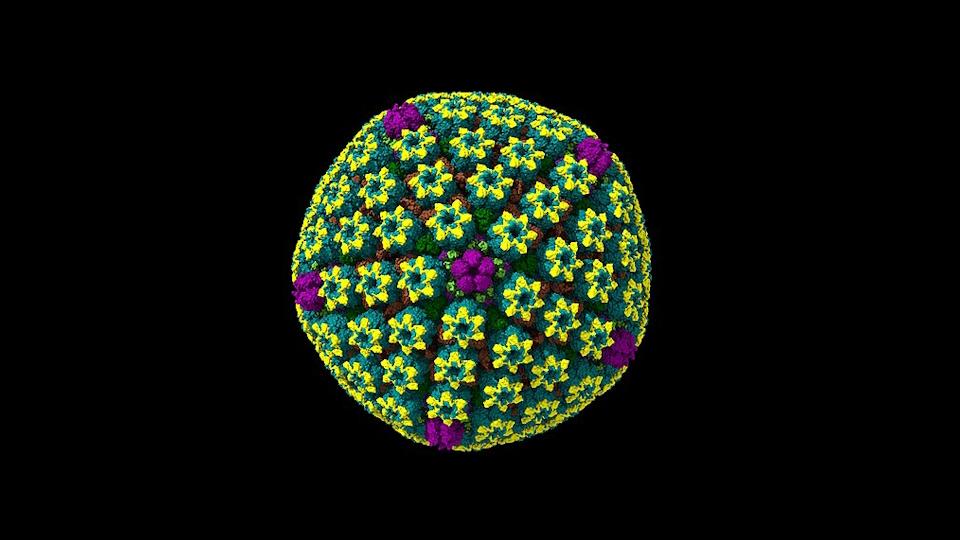GSK drops HSV jab, leaving rival mRNA shots in pole position

Herpes simplex virus (HSV-2) capsid visualisation
GSK has abandoned its clinical-stage vaccine for herpes simplex virus (HSV) after a disappointing phase 1/2 trial, ceding the ground to mRNA shots in development at Moderna and BioNTech.
After completing the primary data analysis from the phase 2 portion of the TH HSV REC-003 study in patients with recurrent genital herpes, the pharma group found that the efficacy of the GSK3943104 vaccine was not sufficient to warrant advancing it into a phase 3 programme, although it had a clean safety profile.
The trial was designed to enrol around 340 adults aged 18 to 60, with the main efficacy objective the ability of the jab to extend the time to recurrence of genital herpes lesions.
The company acknowledged the "unmet medical need and burden" associated with HSV, but said it would look at the "totality of data" before making a decision on the future of its HSV programme.
According to the World Health Organization (WHO), around 491 million people between the ages of 15 and 49 have HIV type 2 – the form of the virus that mainly causes genital herpes – which is around 13% of the world's population.
While most HSV infections are asymptomatic and can be undiagnosed, infection with HSV-2 recurrent lesions on the genitals occur in some patients and having the infection increases the risk of acquiring and transmitting other diseases, including HIV.
Recurrent genital herpes causes a reduction in quality of life, which antivirals – the current standard of care – can only partially restore, leading to a pressing need for alternative options.
The demise of GSK3943104 – which was being tested as a therapeutic vaccine in TH HSV REC-003 – means that mRNA vaccines from Moderna and BioNTech are now out in front in the HSV vaccine development race.
Moderna said earlier this year that its HSV shot – codenamed mRNA-1608 – had started a first-in-human phase 1/2 trial to establish safety and proof-of-concept efficacy in around 365 adults 18 to 55 years of age with recurrent genital herpes. Results from the study are due next year.
BioNTech, meanwhile, said towards the end of 2022 that it had started dosing patients in a first-in-human phase 1 trial of BNT163, an HSV-2 vaccine intended for the prevention of genital lesions caused by HSV-2 and potentially HSV-1.
The history of HSV vaccine development is littered with failures, mainly because HSV infections are prone to latency – hiding away in reservoirs in the body that protect them from immune responses.
GSK abandoned an earlier candidate called Simplirix more than a decade ago, while others from Vical, Agenus, Vir Biotech, and Genocea Biotech have also fallen by the wayside.












